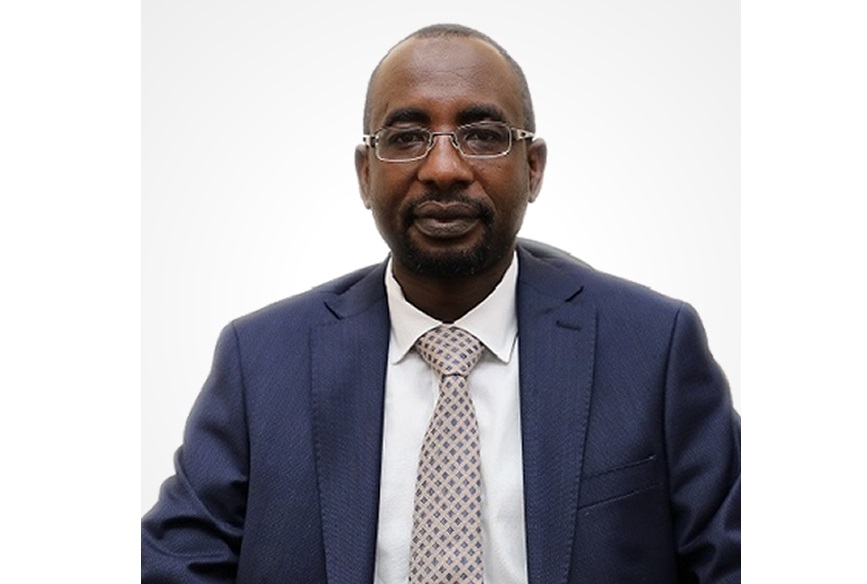Mallam Kashifu Inuwa Abdullahi’s 365 days at the National Information Technology Development Agency (NITDA’s) helm of affairs witnessed so many ups.
Though a lot of criticisms greeted his appointment in August, 2019, Kashifu has been able to show in less than one year that he is no stooge to anybody.
He speaks on his one year in office and says Nigeria has started well on digital economy drive.
Data security
Kashifu said NITDA under him had issued supplementary regulation in line with the National Digital Economy Policy to strengthen the Nigeria Data Protection Regulation (NDPR), and enhance data security and safety for all Nigerians.
“We have also inaugurated the Data Breach Investigation Team in collaboration with the office of the Inspector General of Police (IGP).
Digital Economy: Africa Is Blessed With Great Potentials – DG NITDA
Data Protection: NITDA Resolves 790 Issues
“This has allowed us to track and report data infraction cases to Police. So far this year, we have resolved over 790 data regulation issues”, he said.
He also said NITDA’s innovative way of implementing the data protection regulation under him has resulted in the creation of more than 2700 jobs and data security industry worth more than N2.5billion within a year.
NITDA’s interventions during the pandemic
Our activities at NITDA are to complement the efforts of the Minister of Communications and Digital Economy, Dr Pantami, in advancing digital technology and growing Nigeria’s digital economy, he said.
“We set up 80 digital capacity training centres across all geopolitical zones within just a year.
NITDA also set up three IT hubs, four innovation and incubation parks, six IT community centres and three IT capacity-building centres in higher institutions of learning as well as in unserved and underserved communities across the country”, the DG stated.
According to him, NITDA under him has also held capacity building programmes for over 650 artisans across four geo-political zones, and 200 IT centres managers across the country to be in tune with the digital economy policy and strategy of this government.
He said NITDA also holds periodic innovation contests such as Future-Hack, where participants receive funding and mentorship to develop marketable products and services.
Since assuming office, I have given prize money to many winners and hand-hold them to turn their ideas into products and services, he said.
“It’s worth noting again that we have conducted entrepreneurship training on ICT for 200 women, at different times, where they were provided with laptops pre-installed with the requisite e-resources as support for their start-ups. This has created more than 500 jobs”, he said.
How NITDA supports Nigerian youths in ICT
Kashifu said NITDA tracks and has been maintaining a good relationship with tech entrepreneurs.
“So far we have supported 246 start-ups.
“Similarly, 125 IT hubs and ecosystems builders have received support through Nigeria ICT Innovation and Entrepreneurship Vision (NIIEV)”.
He added that NITDA’s programmes over the past 12 months have resulted in the employment of about 30,000 youths, “and we hope to liaise with all partners in creating opportunities for Nigerians, especially now that the pandemic has disrupted global economy. “
NITDA’s strategies for the tech sector post-pandemic
As a result of the closure of schools in response to the pandemic, the agency under him launched the NITDA Academy.
The aim of this initiative, he said, was massive training of Nigerian citizens who were prevented by the pandemic from their normal daily activities.
“Our rescue effort in growing Nigerian digital economy post-pandemic is a strategic plan developed by our Tech4Covid-19 Committee to support about 100,000 ICT jobs and create an additional 30,000 jobs through time.
“The implementation is currently in progress”, he said.
NITDA, he said, had also set up a Virtual Startup Clinic, mostly for young people to meet with mentors, successful entrepreneurs, investors, industry specialists, business consultants and hub operators to solve problems and challenges they were facing during the pandemic.
Digital technology and agriculture
He said the government has put in place the National Adopted Village for Smart Agriculture (NAVSA) initiative, which has resulted in the empowerment of 145 farmers to utilize digital, smart and precision technology to improve farm yield.
The National Adopted Village for Smart Agriculture (NAVSA) initiative was designed by the Minister of Communication and Digital Economy to take small scale farmers to commercial level using a performance-based approach, he said.
He said the beneficiary farmers under NAVSA programme are expected to build sustainable and digital business models that should create not less than six million jobs in the next 10 years.
On online education
The NITDA boss revealed that the agency has embarked on Massive Online Open Courses initiative for Nigeria’s tertiary institutions.
He said the outbreak of coronavirus is a challenge to prioritize e-learning in the country.
“We’ve capacity building outreach programmes extended to private and public institutions for lecturers, librarians, researchers, students at our tertiary institutions, officers of the Nigeria Police Force, journalists, NYSC members, and undergraduate on SIWES.
“So far we have delivered digital skills and literacy to over 25,000 Nigerians in 2020, despite the pandemic.
“We distributed over 2000 laptops in driving this computer literacy, and have tracked 6386 new jobs and roles created through our interventions’’, he said.
On future of digital technology in Nigeria
Fortunately, he said, the ICT sector accounted for 17.83% of Nigeria’s GDP, “we are at least targeting five per cent quarterly increase on every achievement in the years ahead.’’
He said NITDA’s projections are to drive Nigeria towards a digital world.
“We are currently exploring the use and adoption of Blockchain Technology, Artificial Intelligence (AI) and data exploration framework and strategy for adoption into the digital economy vision of President Muhammadu Buhari’’, he said.

 Join Daily Trust WhatsApp Community For Quick Access To News and Happenings Around You.
Join Daily Trust WhatsApp Community For Quick Access To News and Happenings Around You.


